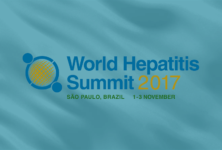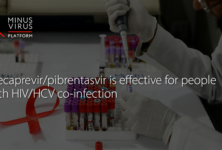HIV weakens the immune system, so people with this virus are at increased risk for several cancers, including the following:
- Kaposi’s sarcoma (KS)
- non-Hodgkin lymphoma
- invasive cervical cancer
These three cancers are associated with AIDS. However, since the widespread availability of potent combination HIV therapy (ART), they have become less common in Canada and other high-income countries, at least among people who are aware of their infection status and who take ART. Furthermore, thanks to ART, if any of these cancers do develop, HIV-positive people are now much more likely to benefit from anti-cancer therapy and survive than in the time before ART was available.
However, with increased longevity, cancers unrelated to AIDS are appearing in some HIV-positive people. These cancers include the following:
- anal cancer
- lung cancer
- liver cancer
- Hodgkin lymphoma
Studies have found conflicting data about whether or not these cancers unrelated to AIDS occur at an earlier age in HIV-positive people compared to HIV-negative people. To clarify this issue, researchers in Canada and the U.S. have collaborated in an analysis of a huge amount of health-related information from nearly 90,000 people in a project called NA-ACCORD (North American AIDS Cohort Collaboration on Research and Design).
In their latest analysis, researchers with NA-ACCORD have found that, compared to HIV-negative people with the same cancers, HIV-positive people were more likely to be diagnosed “with lung, anal, [mouth/throat] and kidney cancer and myeloma at modestly younger ages.” Overall, the age difference when these cancers struck HIV-positive people was usually between two and four years earlier than when they occurred in HIV-negative people. The research team advanced several possible reasons as to why this difference might occur. Regardless of the reasons, these results along with previous studies underscore the need for cancer prevention and screening in HIV-positive people.
Study details
At the time of the cancer analysis the NA-ACCORD had health-related information on 88,018 HIV-positive people collected from clinics across the U.S. as well as some clinics in the following Canadian provinces:
- B.C.
- Alberta
- Ontario
- Quebec
Researchers focused on participants whose data were available for the years 1998 to 2008. The vast majority (86%) were men. Participants were aged 20 to 79 years. Twenty-eight percent of all participants had previously been diagnosed with AIDS.
Researchers were able to access databases of the U.S. National Cancer Institute (NCI) to assess cancer rates in HIV-negative people. Below is a list of cancers on which data were sorted (they are arranged in decreasing order of occurrence in HIV-positive people in the study):
- lung
- prostate
- anus
- liver
- mouth and/or throat
- Hodgkin lymphoma
- colon
- kidney
- voice box
- skin
- breast
- pancreas
- myeloma
Results
The good news is that the researchers said: “There is not a broad acceleration in the development of cancer in [HIV-positive people] manifesting at younger age across [different types of cancer].”
However, after a detailed analysis in which data from HIV-positive and HIV-negative participants were sorted by age, race and specific time periods (1996–1999, 2000–2003, 2004–2008), researchers stated: “Small but statistically significant younger ages at diagnosis were observed [among HIV-positive people]” for the following cancers:
Anal cancer
- HIV positive – 47 years
- HIV negative – 51 years
Kidney cancer
- HIV positive – 52 years
- HIV negative – 54 years
Lung cancer
- HIV positive – 54 years
- HIV negative – 58 years
Mouth and/or throat cancer
- HIV positive – 51 years
- HIV negative – 53 years
Myeloma
- HIV positive – 49 years
- HIV negative – 54 years
Thus, these cancers generally occurred two to four years earlier among HIV-positive people than among HIV-negative people.
The researchers found that, overall, among people who had been diagnosed with AIDS, one cancer—myeloma—tended to occur four years earlier than among HIV-positive people who did not have a diagnosis of AIDS. They also found that HIV-positive people with low CD4+ counts (less than 200 cells/mm3) were more likely to develop lung cancer four years earlier than HIV-positive people with higher cell counts.
The researchers are uncertain as to why some cancers and not others occurred a few years earlier in HIV-positive people. They offer some possible explanations but additional research will be required to better understand the biological basis for their findings.
Cancer prevention
Whatever the reason for the modestly younger age at which some cancers were diagnosed in HIV-positive people, the underlying drivers for some of these cancers are known, so there are options that can be considered to reduce cancer risk, including at least the following:
- Early initiation of ART so that the immune system can be preserved. Research has found that initiating ART early in the course of HIV disease significantly helps to reduce the risk of cancer. Leading international HIV treatment guidelines now recommend that doctors offer initiation of ART as soon as possible after HIV infection has been diagnosed.
- Smoking is associated with many harms and causes several cancers mentioned in this bulletin, including cancers of the lungs, cervix, kidneys, liver and mouth/throat. It is therefore important to help people who smoke come to the realization that they need to quit and to provide support when they do attempt to quit.
- Screening for co-infection with hepatitis B and C viruses (which can cause liver cancer). If active infection with these viruses is detected, doctors can offer treatment. In cases where there is no active infection with hepatitis B and a person has no immunity against this virus, vaccination can be an option.
- Discussion with a doctor about vaccination against HPV (human papilloma virus) is a useful first step to take as this virus can cause cancers of the anus, cervix, mouth/throat, penis and vulva). Doctors and pharmacists will also know if HPV vaccination is subsidized in your region.
- The NA-ACCORD team stated that “more research is needed on screening for lung and anal cancers” in HIV-positive people. Such screening is not offered as part of routine care in all regions, but in some North American cities there are research programs that screen HIV-positive people for anal cancer. Discussion with a doctor about the availability of anal cancer screening in your region is a good first step.
- The researchers noted that although U.S. guidelines recommend the use of low-dose CT scans to detect lung cancer in some current and former smokers, they feel that “more data are needed” about the usefulness of such scans in HIV-positive people.
For the future
As people age, their immune system gradually becomes weaker. Thus the NA-ACCORD team suggested that the “burden of cancer will continue to grow as the [HIV-positive] population ages.” They added that this effect of aging on the immune system underscores the “need for cancer prevention and early detection.”
By Sean R. Hosein
REFERENCE:
Shiels MS, Althoff KN, Pfeiffer RM, et al. HIV infection, immune suppression and age at diagnosis of non-AIDS-defining cancers. Clinical Infectious Diseases. 2017; in press.


 ПОИСК ПО САЙТУ
ПОИСК ПО САЙТУ  поиск по ресурсному центру
поиск по ресурсному центру 



